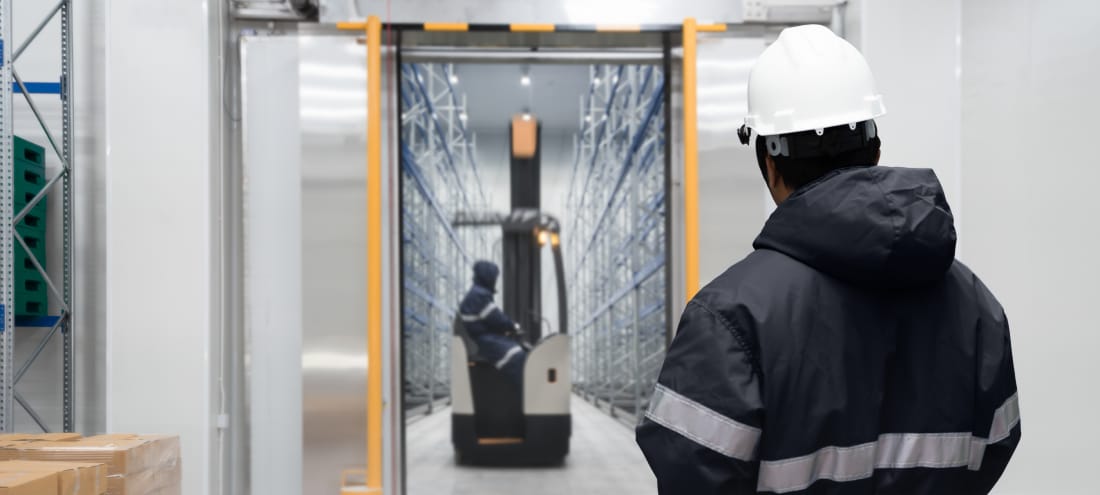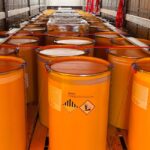In the complex universe of transporting perishable goods, ensuring a quality service to preserve the original characteristics of the goods in transit is essential. This responsibility requires, in logistics management, a precise combination of organization and attention to detail.
Rigorous control during transportation is crucial to protect the goods not only from potential errors in managing the storage temperature but also from inadequate temporal and environmental factors. Let’s look specifically at the aspects that should not be underestimated in the logistics of transportation.
Shipping perishable goods
Maintaining controlled temperature throughout the entire logistics journey is fundamental to preserve the quality of the goods. Moreover, minimizing the exposure time of goods to suboptimal conditions is important to prevent premature deterioration. Therefore, managing transit time is essential to maintain the freshness of the goods, especially in international shipments, where the journey might involve different modes of transport.
C.T.I., as a company also specialized in international freight transport, ensures that each phase of the transport process is managed with the utmost precision and timeliness, offering a continuous and efficient exchange of information regarding the status of the goods and the shipment.
Only through careful supervision of every variable is it possible to ensure that perishable goods reach their destination in optimal conditions, without undergoing changes or damage, and without releasing toxic and harmful substances into the environment.
International regulations for the transportation of perishable goods
The international regulations for the transportation of perishable goods are governed by the European Agreement known as the “ATP Agreement“. This agreement was developed in the context of the United Nations Economic Commission for Europe (UNECE) and aims to establish uniform standards for the transportation of perishable goods across international borders.
In addition to the ATP Agreement, there may be specific regulations in force in individual countries or regions. Operators in the field must comply with relevant local and international regulations to ensure legal compliance and the safety of transporting perishable goods.
ATP: essential certification for the transportation of perishable goods
The main objective of the ATP Agreement is to ensure that vehicles are equipped with adequate equipment to maintain the required temperature during the transportation of food products, pharmaceuticals, or other goods subject to deterioration due to thermal variations.
The ATP regulation provides a specific classification of vehicles, indicating 4 types of specific transport means:
- Isothermal: equipped with thermally insulating walls that limit heat exchange between inside and outside;
- Refrigerating: with the aid of a cold source, they maintain the necessary temperature inside the empty body;
- Refrigerators: equipped with a cooling system that allows lowering the temperature inside the body, keeping it constant when the external temperature is too high;
- Heaters: equipped with a heating device that allows raising the temperature inside the body, keeping it active for at least 12 hours. The internal body temperature is never below 12°.
Technologies for monitoring perishable goods
The joint implementation of advanced technologies allows logistics operators to create a controlled and safe transportation environment for perishable goods even during the longest journeys. Let’s look at some of these technologies:
- Temperature sensors: allow constant measurement and recording of thermal variations, providing operators with real-time information on the internal temperature of the cargo;
- Temperature recorders: in addition to measuring the cargo’s temperature, they monitor critical factors such as humidity, pressure, and geographic position, providing precise data on the condition of the goods;
- Remote monitoring systems: thanks to IoT (Internet of Things), they allow remote control of cargo conditions;
- RFID and GPS tracking: the use of RFID (Radio-Frequency Identification) technologies and GPS tracking devices helps maintain control over the position and status of goods during transport;
- Humidity control system: designed to maintain optimal levels of humidity and prevent condensation formation.
Customized logistics for perishable goods
Customized logistics refers to the design of tailor-made logistic solutions to meet the specific needs of each type of perishable good. The ultimate goal of customized logistics is to ensure the maintenance of the highest quality and safety of perishable goods through the use of specific technologies and optimal transportation methods.
Request a quote or contact us here for more information about our services.










